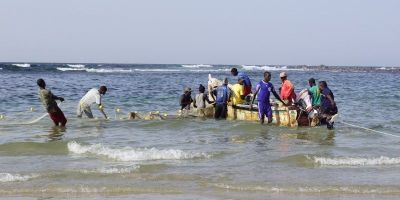SEE Student Hannah Elms gains research skills through the Undergraduate Research and Leadership Scholarship Scheme
Hannah will be supported by University of Leeds alumni to gain research skills and experience through the UGRLS scheme.
The Undergraduate Research & Leadership Scholarship (UGRLS) scheme gives exceptional first year students an opportunity to undertake a supervised degree-related research project during the two summers bridged by their degree programme, and to be appointed Student Ambassadors for their Faculty and School. The UGRLS scheme is funded through the Alumni Annual Fund, supported by donations from former students and friends of the University of Leeds.
SEE Geological Sciences student Hannah Elms is currently half-way through her 2-year UGRLS project “Palaeoecology of Cenozoic marine communities using stable isotopes of shell-bound organic matter (SBOM)”. The project is linked to the Palaeontology Research Group in SEE and is supervised by Cris Little, Fiona Gill and Rob Newton.
By way of background to the UGRLS project, Cris explains: “Palaeo@Leeds and Cohen Geochemistry groups at Leeds have been developing a method of extracting organic material from fossil mollusc and brachiopod shells (called shell-bound organic material – SBOM) from which carbon, sulfur and nitrogen isotopes can be analysed that give equivalent values to the original soft tissues of the organisms, allowing us to interpret the feeding style and food chain position (trophic level) of ancient animals. So far, the SBOM method has been applied to fossil methane seep fossils, but the UGRLS project aims to extend the work to other, more normal, marine communities in the fossil record using specimens of excellently preserved mollusc shells from two Miocene Cenozoic European fossil sites in the Adriatic and Austria. The fossils belong to either still living (extant) species or genera, so their feeding modes are fairly easy to interpret by comparison with their living relatives.”
During her first summer spent working on the UGRLS project, Hannah extracted SBOM from the shells of six gastropod species and then analysed the resulting material, initially for carbon isotopes. Further extraction of SBOM from more species, along with the analysis of sulfur and nitrogen isotopes, represents the second stage of the project for completion in 2015. Comparison between the isotopic data and the inferred feeding mode for each species has, as predicted, not demonstrated a statistically significant relationship. This is because carbon isotopic values do not vary much between trophic levels, but, with nitrogen isotopes tending to demonstrate greater variations, more interesting results are expected once the next stage of the project is completed. Through her work on the UGRLS project, Hannah has already added significant new data for investigating palaeoecological reconstruction of fossil communities using stable isotopes of SBOM. She has presented her initial results at the Palaeontological Association Annual Meeting (PalAss 2014) in Leeds.
Based on her experiences so far, Hannah says “Being involved in the project has really opened my eyes to how a proper research lab works, and I have found it fascinating as I am very interested in palaeontology. It has been great seeing what SBOM can potentially tell us about ancient life, and I feel very lucky to have been able to present the initial findings at the PAAM last December. I have particularly enjoyed the geochemistry aspect of it, extracting the SBOM and analysing its isotopes. I look forward to seeing what the nitrogen and sulphur data reveal, both for the gastropods and other species I shall be working on this summer, and I think the project has also been invaluable work experience as I am considering research as a possible career choice!”
Hannah’s UGRLS project has been made possible through a donation by SEE alumnus, Richard Heaton (Geological Sciences, 1980), who has been supporting the scholarship programme since 2011. Asked why he chose to support students at Leeds, Richard said:
‘I wanted to give something back to the University which started me on my career in geology. The Undergraduate Research and Leadership Scholarships support talented students at Leeds and give them the opportunity to work alongside top academics, equipping and inspiring them with the leadership and research skills necessary for a career in industry or in academic research. I love reading the reports from my scholars about their research projects and I am proud to support their achievements.’




